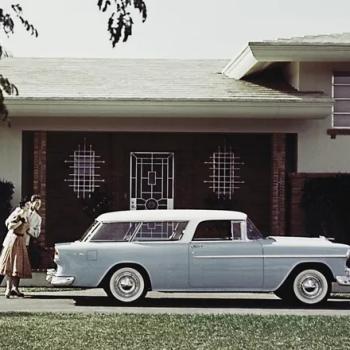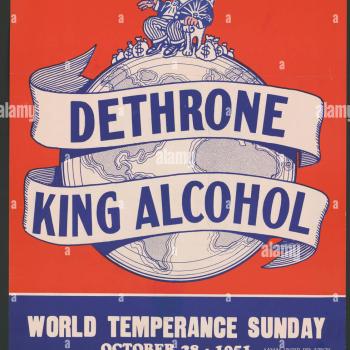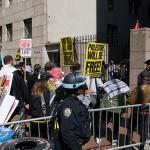Despite some recent reports that the second ceasefire in the war in Ukraine is “generally holding,” there is not much reason for hope. The Ukrainian military says that pro-Russian rebels has attacked 112 times since early Sunday morning. Kiev says that it won’t remove heavy weapons from the front line. And the most recent headline from CNN reads, “Ukraine Ceasefire Falters.” Most observers—including several residents and long-time observers that I know personally—evince little optimism about resolving the conflict in which 5,400 people have been killed since fighting erupted nearly a year ago last April.

The United States has sided decisively with Ukraine. “If Russia continues its aggressive actions in Ukraine, including by sending troops, weapons and financing to support the separatists, the costs for Russia will rise,” President Obama recently told President Vladimir Putin. The hawkish Ted Cruz wants to arm Ukraine with American weapons. Rep. Eliot Engel, a Democrat from New York and the ranking member on the House Foreign Affairs Committee, recently said, “Putin has effectively destroyed democracy in Russia. We must let the Russian people know that we stand by them against this tyrant.”
The judgment from evangelicals in Russia is quite different. Mark Elliott, editor of the East-West Church Ministry Report, recently traveled to St. Petersburg and was stunned by the intensity of support for Putin. Consider the following quotes from Elliott’s recent article in Christianity Today:
- The Congress of the Union of Evangelical Christians-Baptists declared, “We express to you sincere appreciation for your labor in the post of president. . . . We reaffirm our principled loyalty with respect to state authority, based on the unchanged words of the Bible, ‘Let every soul be in subjection to the higher powers: for there is no power but of God; and the powers that be are ordained of God’ (Rom. 13:1, ASV).”
- “Putin has brought stability. We have a better standard of living now and we feel more secure,” said my friend Sasha. (Under Putin, Russians have enjoyed real improvements in salaries and buying power—up until the present economic crisis brought on by a combination of the falling price of oil, Western sanctions, and drastic devaluation of the ruble.) Corruption, Sasha says, is still a problem, but much less so. “I used to be stopped by the police wanting a bribe to overlook some nonexistent traffic violation. But I have not been stopped for a bribe in four years.” Above all, Sasha is grateful to Putin for restoring the Russian sense of pride. The annexation of Crimea, he says, should be thought of as reunification.
- Pastor Daniel is more thoughtful than Valentin. He holds multiple degrees from American seminaries, yet he supports Russian moves in Ukraine and considers Western support for the new government in Kyiv ill-considered. “The idea to play a ‘nationalistic card’ and make Russians the villains makes me sick. It seems to be the only way that Ukraine under the pretext of independence can slip from Russia’s influence.”
- Other Russian evangelicals speak of prophecies about a great revival coming out of Russia, and many believe that Putin is paving the way for Russia to rise as a spiritual giant.” A Ukrainian missionary to Russia believes Putin is “God’s man for Russia in this hour.”
Many Ukrainian evangelicals, of course, are appalled by these words. They see Russian incursions into Crimea and Ukraine as a naked power grab by Putin. They cite Dietrich Bonhoeffer’s dictum, “Obedience to tyrants is equal to disobedie nce towards God.”
nce towards God.”
According to Elliott, the consequences of the conflict are dire. The death toll rises. More than a million refugees have been displaced. A new generation is being infused with hate for their neighbors. And Christians increasingly despise fellow Christians across borders. The Christian NGO Russia Without Orphans and its counterpart Ukraine Without Orphans refuse to cooperate with each other on humanitarian efforts because of political differences.
Elliott’s article indicts not just Russian nationalism but nationalism more generally. Reinhold Niebuhr famously criticized the Soviet system as a tyrannical, demonic society masked as a utopia. But in the Irony of American History (1952), he also noted the West’s arrogance, materialism, its “deep layer of Messianic consciousness,” and “the extravagant emphasis in our culture upon the value and dignity of the individual and upon individual liberty as the final value of life.”
American evangelicals might justifiably look askance at Russian evangelical adoration of Putin. But we have our own political idols. As Elliott elegantly concludes, “Elevating loyalty to a fatherland over loyalty to God the Father is a temptation that knows no borders.”
















